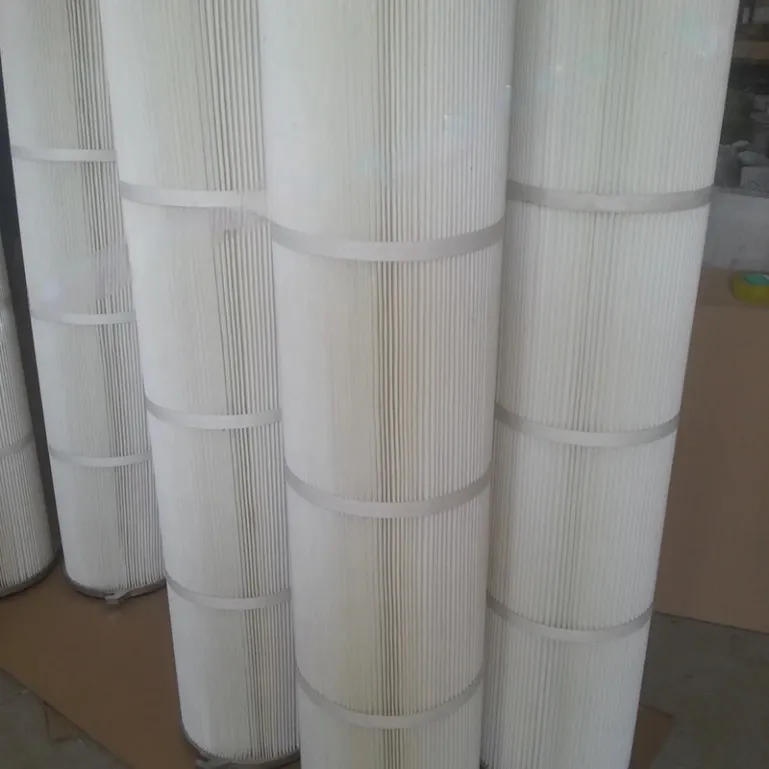 Tel:
+8615930870079
Tel:
+8615930870079
нов . 25, 2024 02:20 Back to list
Enhanced Antistatic Filter Elements for Superior Air Quality Management Solutions
The Importance of Antistatic Filter Elements in Industrial Applications
In the modern industrial landscape, maintaining optimal air quality and equipment efficiency is paramount. One of the critical components in achieving this is the antistatic filter element. These specialized filters play a vital role in numerous industries, including pharmaceuticals, electronics, and food processing, where the presence of dust, particles, and static electricity can significantly impact production quality and safety.
What is an Antistatic Filter Element?
An antistatic filter element is designed to reduce or eliminate static electricity buildup in both air and filter materials. Static electricity can cause various problems, including equipment malfunction, dust attraction, and even explosions in environments with flammable materials. These filters are typically made from conductive materials or include additives that prevent static charges from accumulating on the filter surface.
How Antistatic Filter Elements Work
Antistatic filter elements operate on a straightforward principle they prevent the accumulation of static electricity by allowing charges to be safely dissipated. This is achieved through the incorporation of conductive fibers or coatings within the filter medium. When air passes through the filter, any static charges that build up as particles collide with the filter surface are redirected away, thus maintaining a neutral electrical state.
In addition to their electrical properties, these filters perform the primary function of trapping airborne particles. The filter media often consists of fine fibers that can capture dust, pollen, smoke, and other contaminants. The combination of efficient filtration and antistatic properties makes these elements invaluable in environments where air quality and static control are essential.
Applications of Antistatic Filter Elements
1. Electronics Manufacturing In the electronics industry, where components are sensitive to electrostatic discharge (ESD), antistatic filter elements are crucial. They help maintain a clean environment free of dust and static charges, safeguarding delicate electronic components during assembly and testing.
2. Pharmaceutical Production Pharmaceutical facilities require strict contamination control. Antistatic filters help prevent the accumulation of particulates that could contaminate products or interfere with sensitive processes. They also reduce the risk of static igniting flammable substances used in some pharmaceutical applications.
antistatic filter element

3. Food Processing In the food industry, maintaining hygiene is essential. Antistatic filters ensure that airborne contaminants are captured without the risk of attracting additional dust through static electricity, thereby supporting food safety standards.
4. Paint and Coating Industries In painting applications, static charges can lead to uneven coatings and attract dust to freshly painted surfaces, resulting in defects. Antistatic filters help control dust levels and ensure a smooth finish by reducing static buildup in the environment.
Benefits of Using Antistatic Filter Elements
The benefits of integrating antistatic filter elements into industrial systems are numerous
- Enhanced Safety By reducing static charge accumulation, these filters mitigate risks associated with explosions or equipment failure due to discharges.
- Improved Equipment Lifespan By maintaining cleaner air and preventing the influx of dust and particulates, these filters extend the life of machinery and equipment, reducing maintenance costs.
- Higher Product Quality With fewer contaminants affecting production processes, companies can ensure that their final products meet quality standards more consistently.
- Regulatory Compliance Many industries are subject to strict regulations regarding air quality and contamination control. Using antistatic filters helps companies meet these requirements effectively.
Conclusion
Antistatic filter elements are an essential part of many industrial applications, providing both air quality control and static electricity management. Their importance cannot be overstated, especially in environments where cleanliness and safety are critical. By investing in quality antistatic filter solutions, organizations can enhance operational efficiency, improve product quality, and ensure a safer working environment for personnel. As industries continue to evolve, the role of these filter elements will undoubtedly grow, necessitating ongoing innovation and development in filtration technology.
-
Nano Fiber Technology: Revolutionizing Cartridge Dust Collector FiltersNewsAug.06,2025
-
How Activated Carbon Air Cartridges Eliminate OdorsNewsAug.06,2025
-
Dust Filter Cartridge Handling Fine Particulate MatterNewsAug.06,2025
-
Cartridge Dust Collector Filter for Welding Fume ExtractionNewsAug.06,2025
-
Activated Carbon Filter Cartridge Effectiveness Against VOCsNewsAug.06,2025
-
Activated Carbon Air Filter Cartridge Benefits ExplainedNewsAug.06,2025

 Email:
Email:





